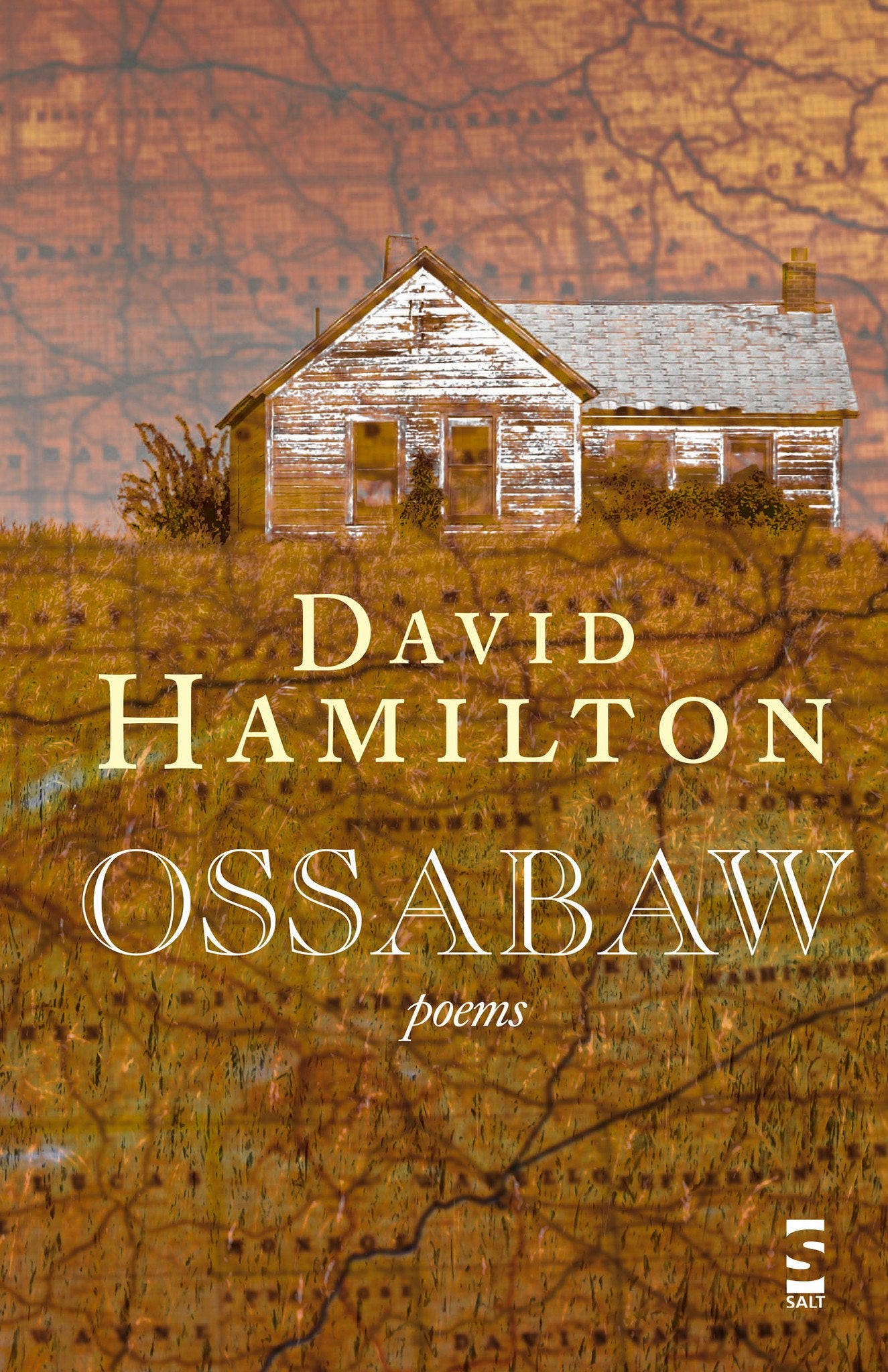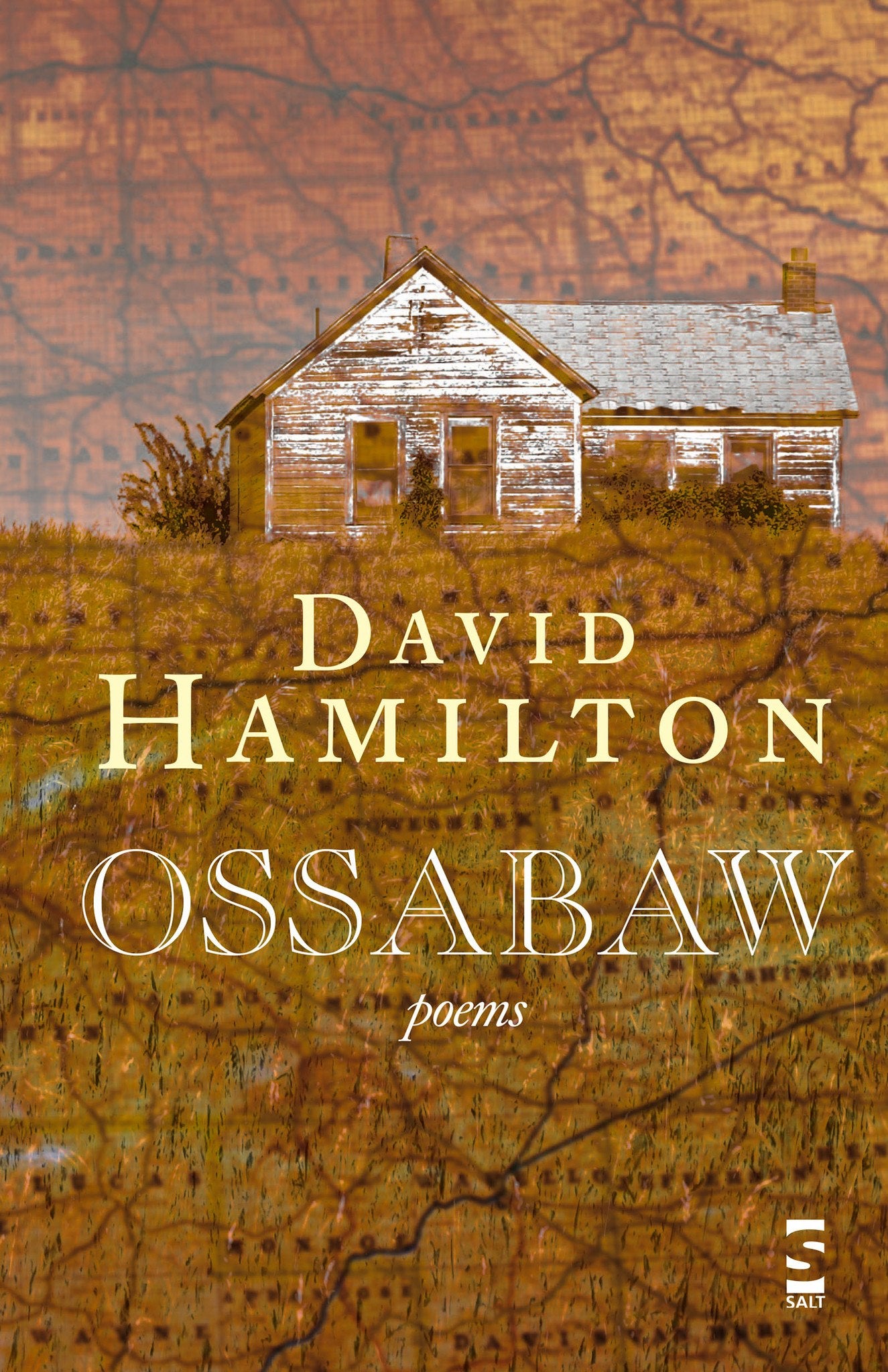David Hamilton
Ossabaw
Ossabaw
ISBN:9781844712601
Couldn't load pickup availability
Synopsis
Believing in invention as the art of finding things, David Hamilton has been concerned with finding what, in memory, in nature, in his reading, and in daily events, suggests a poem. Some of the results are “found poems” in the strict sense, as he samples and refashions existing texts; other poems in this remarkable book could be said to be found in the extended sense of being discovered in memory or by observation.
Comprising free verse lyrics as well as poems in recognizable forms, Hamilton demonstrates an extraordinary range, including a series of upside down sonnets, “upsodounnets” as Chaucer might have said. The long title poem carries finding to an extreme as Hamilton condenses journal entries to a collage of lyrical notes. Observation of nature is a primary subject, but not far behind comes material from daily life and the world of art – from paintings and from other texts, both early and recent.
Praise for this Book
‘The abiding accomplishment of these poems is how they lend a voice to nature, Hamilton’s most common subject. With his fluid line and graceful imagery, he creates poems that seem discovered more than written. This is among the most difficult achievements, to extend consciousness into the world without trampling what it touches. His work is transformative in the best sense, in that it deepens how we see and what we feel. I very much enjoyed encountering this mind.’ —Bob Hicok
‘The poetic debut – at long last! – by an esteemed editor and memoirist, David Hamilton’s Ossabaw is a tapestry of impressions and insights, music and ideas. From translations of Anglo-Saxon riddles to blank verse lyrics, narratives, prose poetry, and found poems, this poet reveals at every turn an eye for details from the natural world, wit, and wisdom. ‘One motive for turning up next spring,’ Hamilton writes, ‘is to see how far these poppies spread.’ This book is lined with such motives, such graceful discoveries.’ —Christopher Merrill
‘With their subtle craft and quiet acuity, David Hamilton’s poems are astonishingly varied. He is at home with paintings, Gertrude Stein, landscape, Catullus, haiku, Old English literature, and the personal world of memory. Most vivid for me are his poems about the natural world – whose “horizon sweeps wide”, whose ground “tugs” at your feet – poems whose fluent lines offer up the moment in its own fluidity, with images as sharply observed as the thin-bladed hoe he remembers weeding with.’ —Margaret Gibson
‘David Hamilton’s Ossabaw offers us poems of profound intimacy and formal elegance. These finely made poems, forged from and by a riveting intelligence and a luminous heart, illuminate the lyric moment with a vision at once precise and generous. In these intricately calibrated poems, the past? always present, always fugitive? is drawn up like cold, dark water from a well and in it one sees and reads the riddle of memory, the riddle of the mercurial self.’ —Eric Pankey
Reviews of this Book
‘Hamilton never practises self-absorption, let alone self-aggrandizement. A consistent philosophical stance emerges, wherein what is outside the self, what is Nature, is given precedence. He has still another side, though: a playful and oblique poet who will not refuse found poems. A deeper indicator of Hamilton’s complex sensibility is his simultaneous interest in Old English poetry and Gertrude Stein.’ —John Taylor
‘Whether the poet is grappling with love (or the loss of love), a friend’s urge to die, man’s very slight place in nature. “impermanence” (as he puts it), or the paradoxes of our unique tool for comprehending the world, language, he emphasizes the unanswerable questions that face us all.’ —John Taylor
Product Details
Extent: 112pp
Format: Paperback
Publication Date: 01-Jun-06
Publication Status: Active
Series: Salt Modern Poets
Subject: Poetry by individual poets
Trim Size: 216 x 140mm


